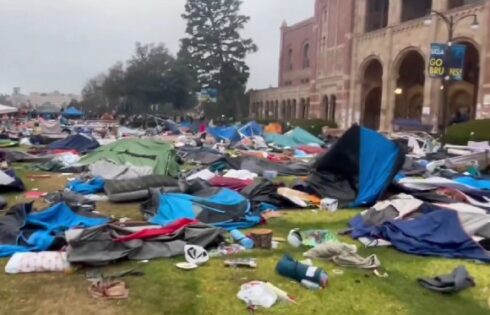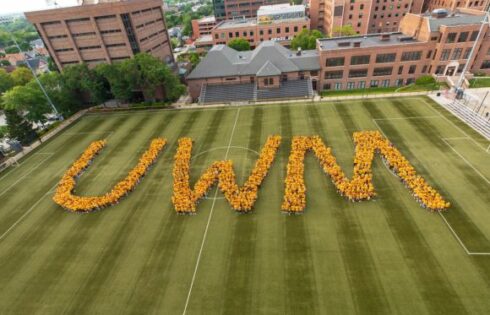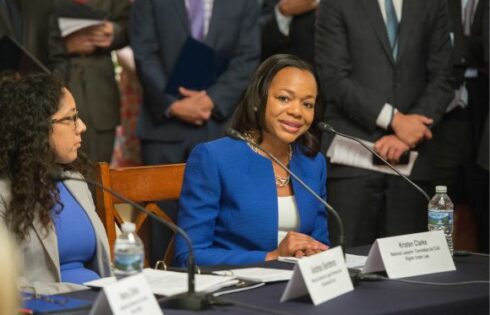The political climate is tense in Masschusetts on election day — but it remains to be seen whether BC students will stay home or come out for the election like in years past.
In the 2006 midterm election, the Massachusetts exit polls showed that a mere 11 percent of votes for Senate came from youths in the age group of eighteen to twenty-nine. Likewise, only 11 percent of votes for governor came from those of the same age group.
The 2008 election changed that. The votes that came from the eighteen to twenty-nine age group during the presidential election of 2008 comprised 17 percent of the votes for president and an even higher 19 percent of the votes for U.S. Senate.
“The presidential election is a national event, highly publicized, in which both party’s candidates spend a gazillion dollars to advertise themselves,” said Dennis Hale, an associate professor of political science at Boston College.
Hale described Congress campaigns as “less publicized, and often not heavily contested.” He said that many state legislatures have drawn Congressional districts so that the dominant political party of the state avoids competition by holding “‘safe seats,’” thus making for an unexciting election.
“About 1/3 of Massachusetts voters voted for Republican presidential candidates in the past several elections,” he said, “but there are no Republicans in the House delegation, in part because of the way district boundaries are drawn.”
Despite the trend of past midterms, though, this year is quite different.
“Republicans are enthused,” adds Hale, “Democrats are dispirited, and the Tea Party movement has brought tens of thousands of voters into the system who might otherwise have skipped the election entirely.”
Hale presumes that most college students remain fans of President Obama, yet he wondered “Whether those students will translate that support for the president into support for candidates for the House (or for governor of Massachusetts), since the president is not on the ballot — even though the election is critically important to his presidency.”
Recent polling by Harvard University’s Institute of Politics says it probably won’t. Among eligible voters under the age of 30 who were surveyed for the Harvard poll, only 27 percent said they will “definitely be voting” in this year’s election, a drop of nine percentage points from a year ago. Sixteen percent said they would “probably be voting.”
Upon reviewing the 2006 and 2008 statistics, David Hopkins, Department of Political Science, cited four main reasons for the figures: young voters are “less well-informed about politics,” are less “civically engaged” than their older counterparts, “tend to have collectively less strong political opinions and allegiances,” and “don’t always keep up their voter registration.”
“The Obama candidacy was particularly appealing to voters under the age of 35,” Hopkins said “and the Obama campaign expended a great deal of resources in targeting these voters and encouraging them to turn out to vote in 2008. The electorate included more casual or first-time voters.”
Though Obama received much active support from young voters during 2008, the lack of attention-grabbing campaigns and stiff competition between candidates will most likely deter young voters from trekking to the polls during the 2010 midterm elections. Hopkins suspects that the student turnout for the midterm elections will be as it has been in the past.
Kristoffer Munden, President of the College Democrats of Boston College, agreed with Hopkins, though he stressed that the turnout could be high for a midterm election.
“There is a significant amount of attention surrounding these elections which may boost turnout slightly over historical levels,” Munden said.
President of the Boston College Republicans Tomas Castella hypothesized that the percentages of midterm votes would resemble those of 2006.
“Among more conservative students this number will probably be higher than 2006, however,” he said. “This election is almost just as important [as a presidential election] given the generally accepted idea that this is a referendum on Obama’s policies and can greatly affect the course of the administration.”
Morgan Chalfant is a staff writer for the BC Observer. She is a contributor to the Student Free Press Association.
Like The College Fix on Facebook / Follow us on Twitter




Please join the conversation about our stories on Facebook, Twitter, Instagram, Reddit, MeWe, Rumble, Gab, Minds and Gettr.